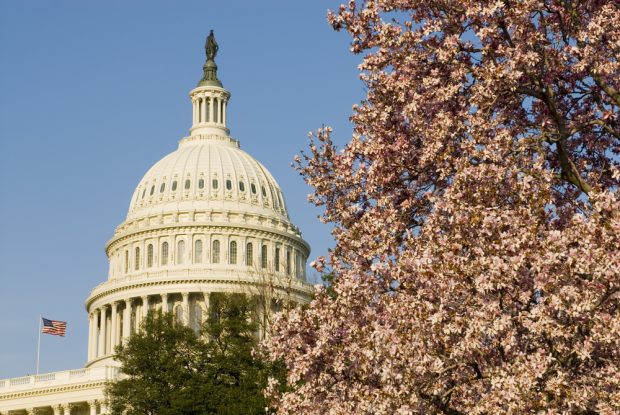 U.S. Capitol, Washington, D.C. (Source: Shutterstock)
U.S. Capitol, Washington, D.C. (Source: Shutterstock)
The credit union trade organizations, CUNA and NAFCU, appear to be fully aligned in the fight against any sort of legislation and government intervention that could restrict the ability of credit unions to offer overdraft protection plans for their members.
Officials with NAFCU and CUNA filed letters this week with the Senate Banking, Housing, and Urban Affairs Subcommittee to express their arguments to protect overdraft protection programs offered by credit unions. The committee held a hearing Wednesday to examine overdraft fees.
Recommended For You
Both credit union trade organizations argued that any increased legislative efforts to eliminate overdraft protection programs could result "in significant negative impacts on borrowers and credit unions."
In a letter filed Tuesday, NAFCU Vice President of Legislative Affairs Brad Thaler wrote, "It is inappropriate to intervene in market forces that are already leading many credit unions and other financial institutions to reduce, limit or eliminate overdraft and non-sufficient funds (NSF) fees."
On Monday, CUNA President/CEO Jim Nussle wrote to the committee, "We believe effectively shutting down overdraft services would unnecessarily limit credit unions' ability to assist their members and is ill-advised. Rather, the best and least disruptive path forward would be to continue permitting transactions to be processed and encouraging affected consumers to reach out to and work with their local credit union to reduce or eliminate any fees or to consider other low-cost products and services."
CUNA and NAFCU officials pointed to the fact that credit unions offer members an opt-in choice for overdraft protection as a way to provide a peace-of-mind for members. Since these overdraft programs are already subject to regulatory oversight and compliance examinations, the need to subject credit unions to even more legislative oversight is not necessary.
Thaler added, "NAFCU believes that the best option for policymakers is to let the market for these programs evolve without artificial government intervention to stymie consumer choice. If policymakers are concerned about consumer information, the focus should be on increasing educational resources for consumers and improving consumer disclosures with these programs, not eliminating these programs altogether."
Nussle wrote, "Irrespective of innovations in overdraft, credit unions have a track-record of establishing policies and procedures aimed at assisting members that frequently use overdraft protection. When a credit union becomes aware of a member's frequent overdraft usage, they often attempt to contact the member to address the member's financial situation and offer financial education support or alternative credit products."
Both groups stated they will continue working with the CFPB and lawmakers to ensure credit unions and members retain the right to use overdraft protection programs.
© Touchpoint Markets, All Rights Reserved. Request academic re-use from www.copyright.com. All other uses, submit a request to [email protected]. For more inforrmation visit Asset & Logo Licensing.







